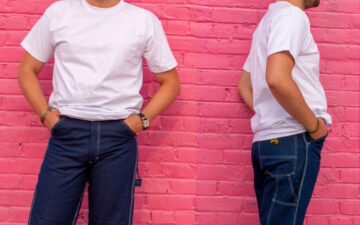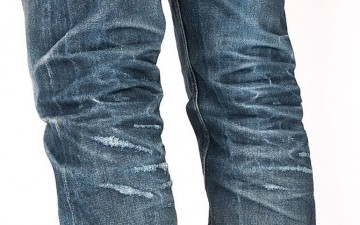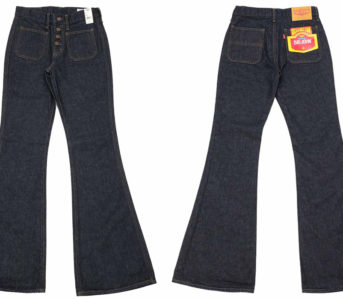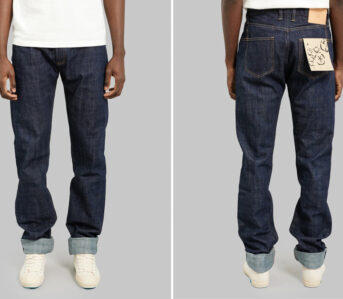This is the Staff Select article you’ve been patiently waiting for: Jeans. If it wasn’t obvious, we’re pretty obsessed with denim at Heddels, so it makes sense that we’d have some things to say about our favorite pairs of jeans. You might even have noticed while reading this article that some of us chose to talk about multiple pairs of jeans, meaning we couldn’t pick just one pair to gush over, that’s how much we like our jeans. We don’t take denim rotation lightly, each pair has its place, and purpose in our wardrobes.
Is denim made in Japan overwhelmingly preferred? Are all of our favorite jeans comprised of 100% cotton yarns, or are there some cotton blends in the mix? Is there anyone sporting spandex, skinny jeans, or colorful varieties? You’ll find that what makes a jean great is highly personal, from the fit to the fabric, we’ve all got our own individual needs and tastes when it comes to the jawns we adore. We think you’ll be pleasantly surprised at how regular, available, and affordable most of our picks are.
Why trust us? Well, we’ve all been in the game long enough to have field-tested a range of quality clothing, and the Heddels operation puts us onto some of the best clothing in the world week in, week out. Whilst our opinions and experiences shouldn’t be taken as definitive, this series will provide you insight into what has worked for us and why.
Daniel – Sugar Cane 1947s
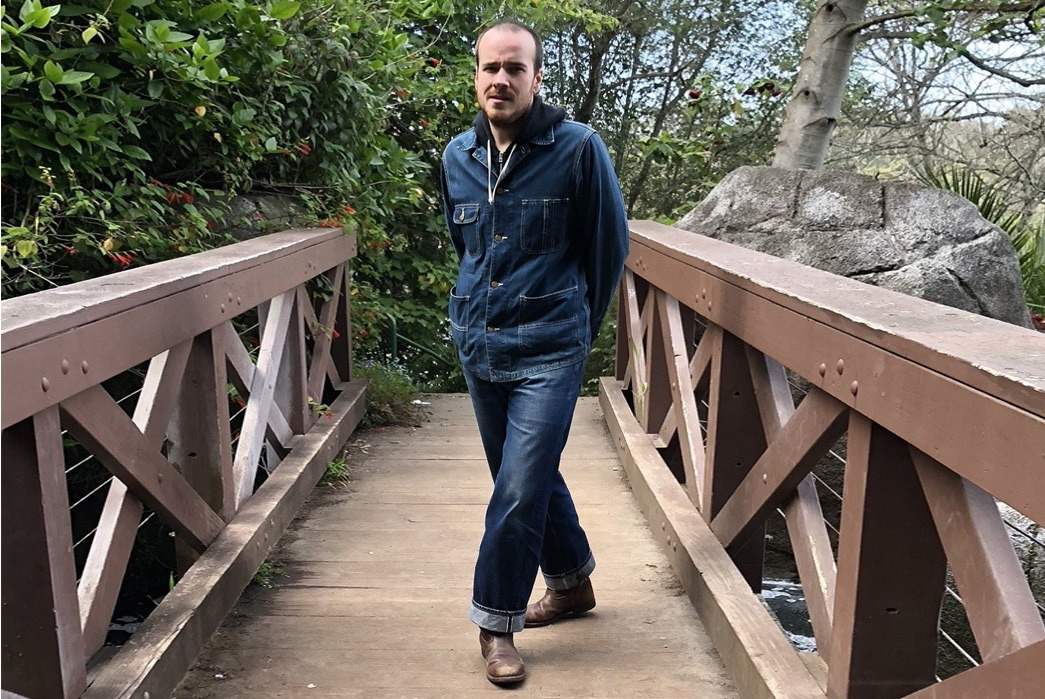
Sugar Cane‘s mid-century Levi’s 501 reproduction ticks all the boxes for me. Nice and mid-weight denim that fades beautifully over time, a high rise that I compare all other jeans to, and a roomy thigh, knee, and hem. Relaxed straight-leg jeans are the most comfortable jeans, in my opinion. I like the ’47s so much, I’ve bought multiple pairs of them over the years.
My favorite versions of the 1947s are the ones that you can buy straight from Japan, with the SC pointy back pocket arcuates and Levi’s-style red tab intact, none of that being removed goes a long way for me. There’s something about having a red tab on a jean or jacket that just looks right. One other majorly awesome thing about these jeans is that compared to other Japanese denim, they’re super affordable, usually falling in the sub-$200 price range.
Available for $194 ($174.60 for Heddels+ Subscribers) from Redcast Heritage.
James – Oustanding & Co. Wide Selvedge One Wash Jeans & Samurai Jeans (numerous fits)
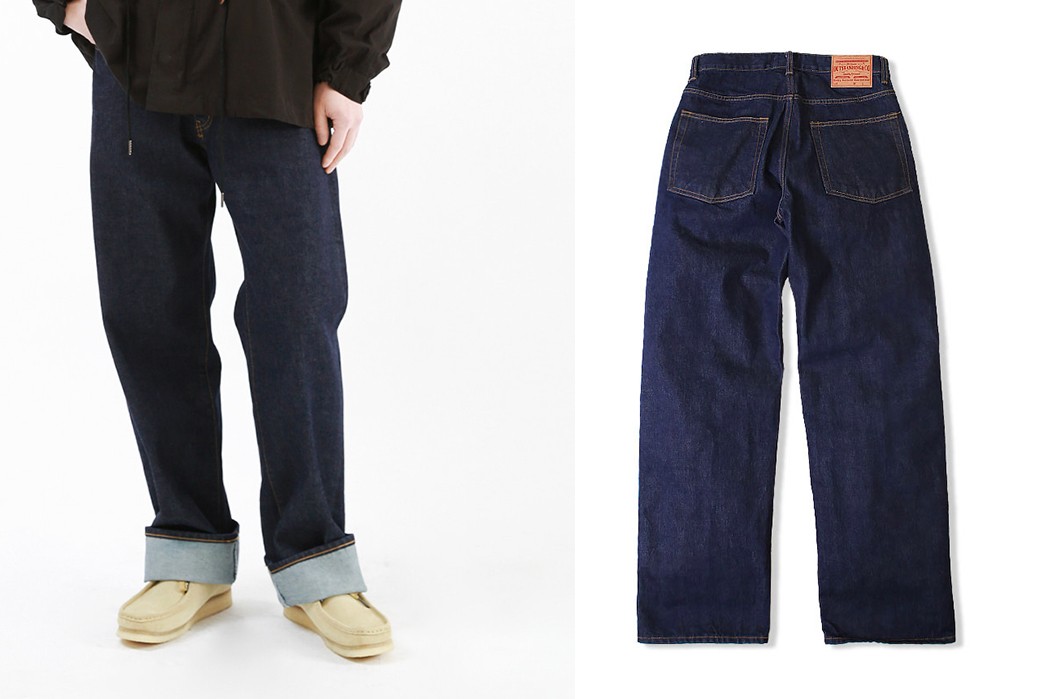
Images via Outstanding & Co.
Okay, I’m going to start by saying my main jeans by South Korean imprint, Outstanding & Co. are not that good in terms of build quality or denim nuance/ rarity. Yes, they’re selvedge, but as retailers like Gap and Uniqlo have exhibited, selvedge doesn’t necessarily point to high quality in all instances. But Owning Things you Want to Use Forever doesn’t mean every single item you own has to be of the highest build quality and stature in the scene, it just means you want to use that thing forever, and commit to repairing and caring for that thing. This is certainly the case with the Wide Selvedge One Wash Denim Jeans by Outstanding.
See, it’s all about the fit for me, and these Outstanding & C0. jeans are the best wide fit I’ve had. I often find that wide leg jeans have too much room up the top, and not enough down the bottom for me. There needs to be a balance. I’ve tried 4-5 ‘wide’ jeans from big Japanese labels which have been absolutely gorgeous, but just not quite right for me. These have a nice mid-rise and a full leg that isn’t anti-fit, leading to a very wide, but clean, 90s-inspired fit. No, there are no flat-felled seams, raised belt loops, crazy slub, or snazzy branded hardware, but they simply work for me in terms of silhouette and comfort.
The denim itself is cheap selvedge from Thailand’s Atlantic Mills. Sanforized and weighing in about 12 oz. ish at a guess, it’s nothing special, but for someone who doesn’t wear jeans every day and likes to wear their indigo up top, it scratches the indigo itch in the pants department. The finished jean is constructed in South Korea where it is then one-washed, leaving the denim soft and drapey from the start.
Available from Outstanding & Co. for ~$75.
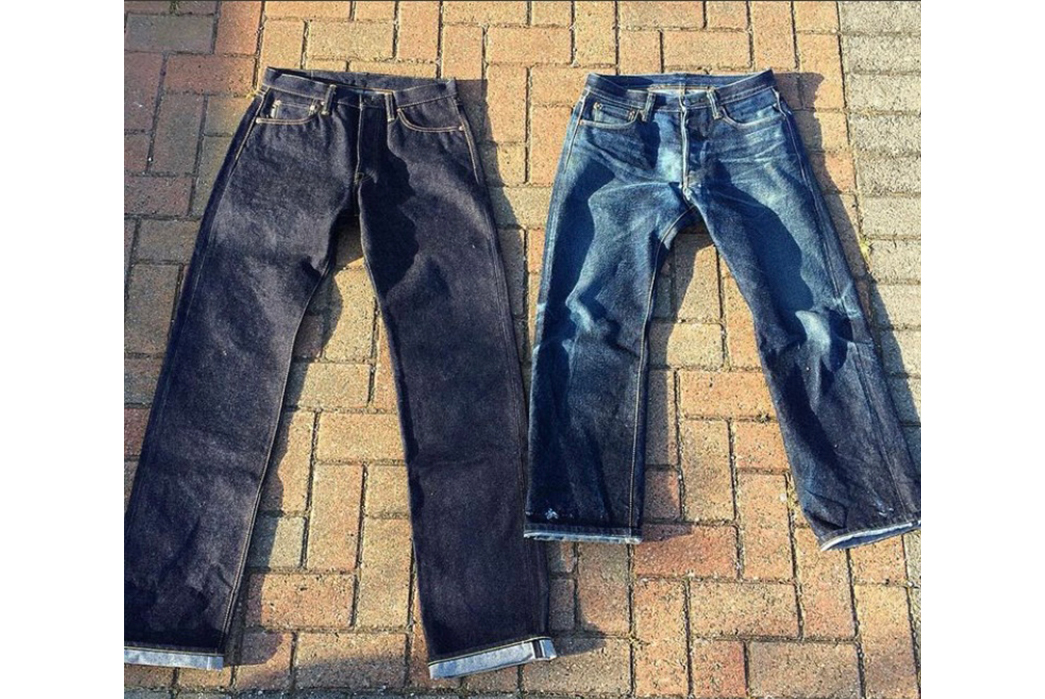
A pair of new Samurai S510XX next to a pair worn daily for around 2 years in the UK.
Okay, so Samurai! Samurai was my first love in the world of raw denim, and I’ll always have a soft spot for the brand. In my opinion, it’s the gold standard when it comes to Japanese denim labels, offering mid-to-heavyweight denim in iconic silhouettes, all of which have the potential to produce some of the most insane fades you’ll ever see. I sadly haven’t got a pair in rotation at the moment due to a combination of personal weight fluctuation, but I have owned and got a lot of wear out of both 19 oz. S710XX and 510XX, and loved both pairs dearly before growing out of them.
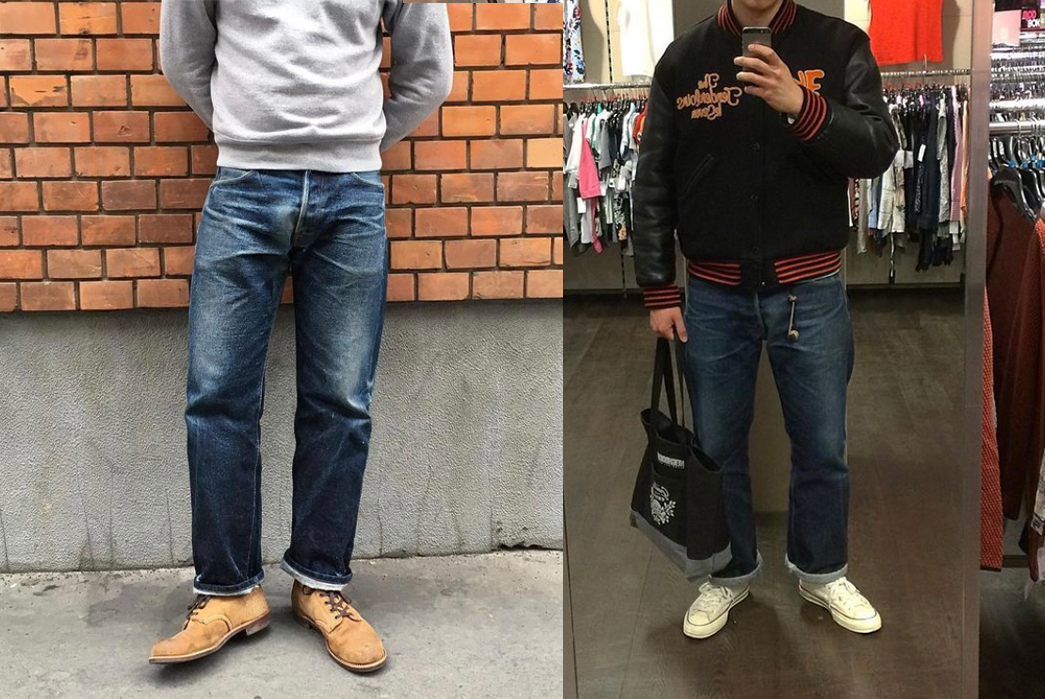
My Samurai S710XX after around 2 years of wear (left) and S510XX after around 1 year of wear (right)
Zach – L.C. King Black 5 Pocket Jeans

I didn’t wear black denim until I found this brand. For the longest time, I associated black denim with rockabilly and punk — or even punkabilly — until I saw just how versatile it can be. The “punkers” are right; it does look cool. Meanwhile, L. C. King’s 5 pocket line of jeans is a wardrobe staple for achieving a timeless look. Seeing a version of the classic in black denim, I figured I’d give it a try. Whether they’re worn with a well-loved chambray or a favorite flannel, black denim works its magic. These have become my go-to, all-weather pair of jeans.
The 12 oz. weight of its weave makes it ideal for being outside. A more modern fit is characterized by a lower rise and a tapered leg that works well with shoes and half boots. Despite more contemporary stylings, the actual construction pattern is a throwback to the early 20th century. L. C. King (proprietor of the sought-after Pointer Brand) has been making work clothing in Bristol, Tennessee, USA since 1913. Materials and labor are sourced as close to the manufacturer as possible. If you’re in the area, stop in the quaint factory store downtown. They also ship worldwide with some bodacious deals.
Typically available from L. C. King for $115.
Charlie – Outlier Dyneema Blend Jeans
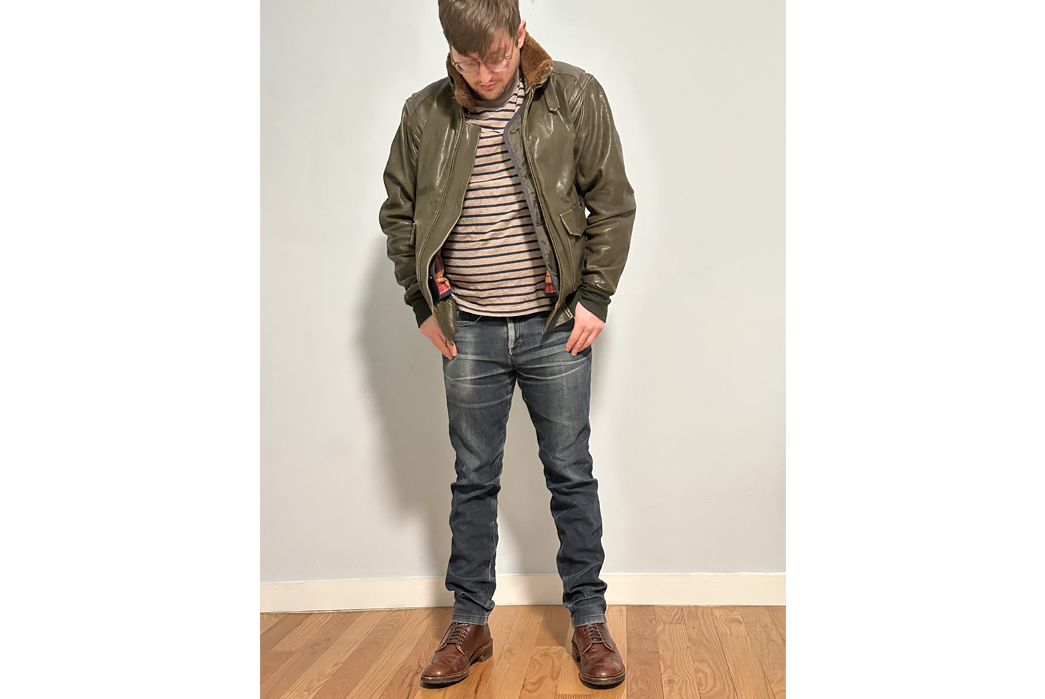
Like so many of you, I wear the same pair of jeans every day. There is just something so satisfying about wearing a garment that both looks and feels better with each wear — but that’s actually a two-edged sword. The same attributes that make cotton age beautifully also mean it’s slowly breaking down, and eventually my favorite jeans become too damaged to wear out.
Enter Outlier. While I like their tech clothes, their combination of patterns and fabrics has never resulted in a pair of pants that fit me how I wanted — at least until I got my hands on their End of Worlds. Made with an indigo-dyed cotton warp, these jeans fade just like any other pair of raws, but with a catch. They feature not one but two wefts, both made from Dyneema: an ultra-tough fabric often used in motorcycle clothing and ballistic armor. The first weft is black and is the primary weft seen through the warp, leading to the initial inky-blue color. The second weft is what faces the skin when the jeans are worn.
I got my pair like-new from a secondary marketplace in 2018, and they’ve been my primary pair of jeans ever since. They’ve faded from their initially deep indigo hue, and I have experienced zero holes, blowouts, or frayed edges throughout that time. In high-wear areas, I can see the cotton warp breaking down, but the beauty of two Dyneema wefts is that the fabric is still completely structurally sound.
My only complaint about these jeans is that they are no longer made, and that the cotton warp was a bit boring texturally. If Outlier releases a similar dual-Dyneema weft pair with a heavyweight, slubby warp thread or a neppy, natural indigo yarn they’d be an instant pick-up by me (and hopefully enough other folks to warrant such a pair being made, *hint hint Outlier*).
All in all, these jeans have exceeded my expectations further than any other piece of clothing or pair of boots. And to be honest, it’s not even close.
David – The Real McCoy’s 991BK Jeans & Sugar Cane Type III Black Jeans
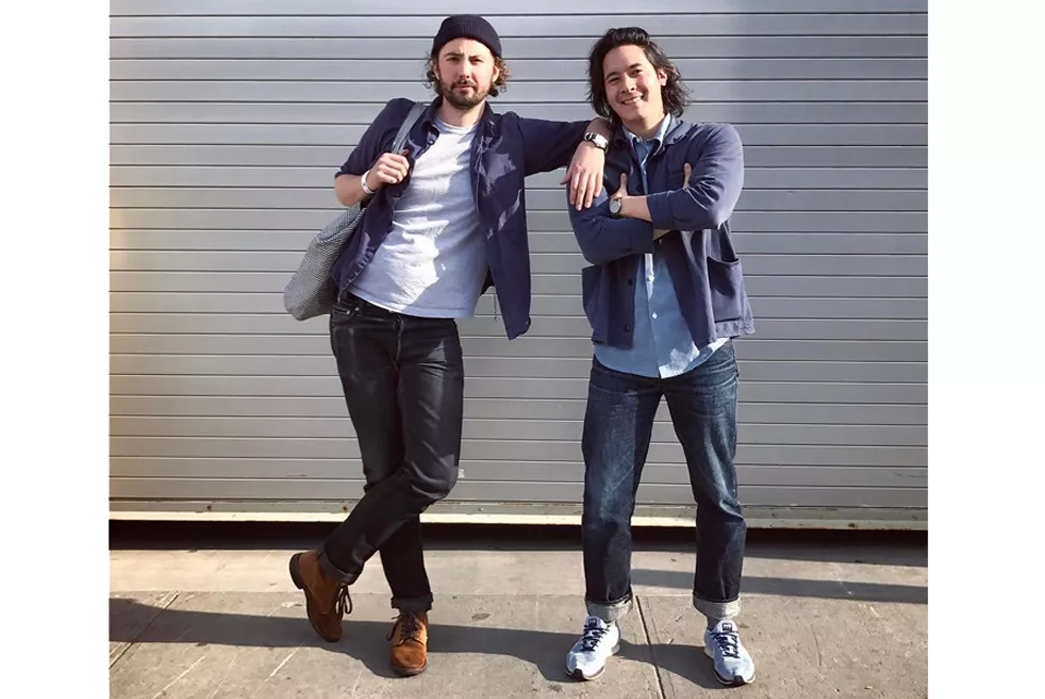
Even though our site is drenched in indigo, I’ve worn black denim almost exclusively for the past seven years. I have a lot of denim and indigo shirts and it’s a way to just slightly steer away from the Canadian tuxedo (no offense, Nick).
My first pair of choice was The Real McCoy’s 991BK. I wore one for three years then the next for two. Then when they discontinued it, I switched to a pair of Sugar Cane Type III black jeans, which are practically identical but with darker denim and a higher rise.
I don’t want my jeans to stand out. I wear the same pair 6-7 days a week and would prefer most people don’t catch on, so I look for a dark weft, slimmish, minimally detailed, and preferably unsanforized. When Sugar Cane cuts me off (they’re currently out of stock on Hinoya and I just blew out my second pair for a third time), I’m not sure where I’ll migrate, but I’ll be on the hunt soon.
The Sugar Cane Type III jeans are typically available for $140 from Hinoya, but are currently sold out.
Brad – Wallace & Barnes Denim
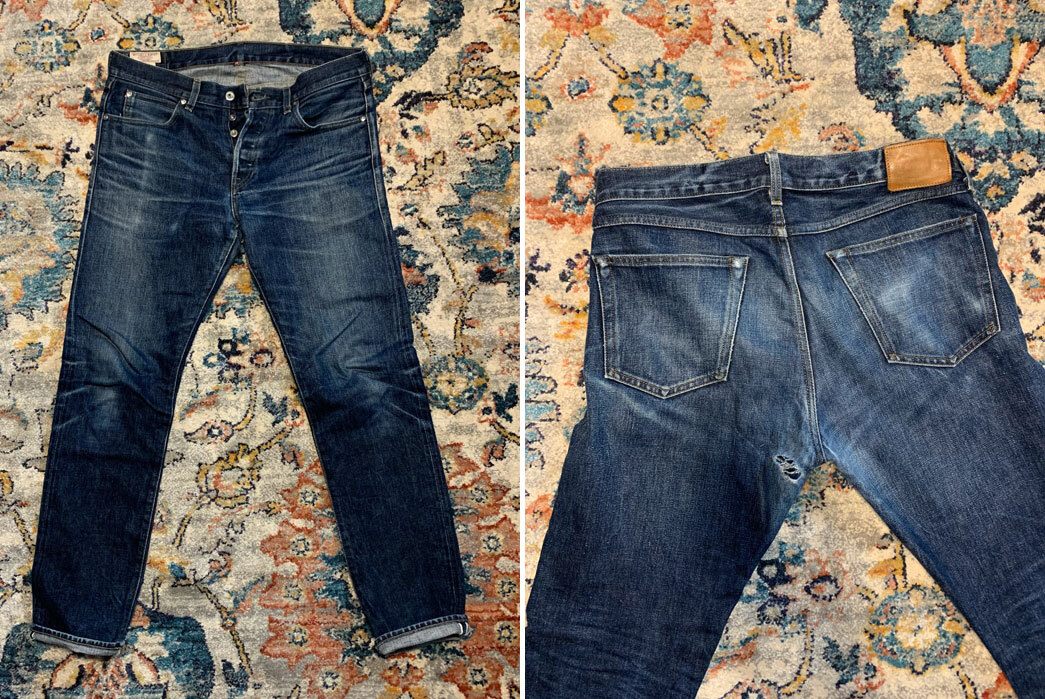
My go-to, most worn jeans are an eight-year-old pair of Wallace & Barnes. They were made in the USA out of Japanese fabric. However, I have no idea what mill the denim came from or where in the USA they were assembled. These bad boys check all the boxes denim heads look for: Raw selvedge indigo-dyed denim, steel rivets, button fly, and reinforced pockets. And the fades that have developed over the years are just perfect.
J.Crew was very dedicated to denim under Men’s Creative Director Frank Muytjens, who succeeded Todd Snyder in 2008 and served through 2017. Under his direction, they sourced some of the finest Japanese and American denim (RIP White Oak) and cut no corners turning them into jeans. The standard J.Crew jeans were moderately priced at $98, while their higher-end options ran from $125 to $195, all of which were considered bargains compared to equivalent products at the height of denim mania.
For the in-house Wallace & Barnes brand, a pet project of Muytjens and then CEO Mickey Drexler, they really swung for the indigo-dyed fences. All the denim used came from small batches and often consisted of unique weights and dyes. Most of them were priced over $200, which was still a bargain for the quality of denim you were getting at that time.
Fortunately, I worked for the company at the time and got a couple pairs for next to nothing. This particular pair features a real leather patch on the back waistband (most models had a khaki canvas patch), an indicator of the highest level of Wallace & Barnes denim. That said, the seat has blown out twice and I’ve repaired it each time with a patch and sashiko stitching. As the epitome of investing in quality over quantity, these jeans have already earned their ticket price multiple times over.
Ben – 90’s Levi’s 505s
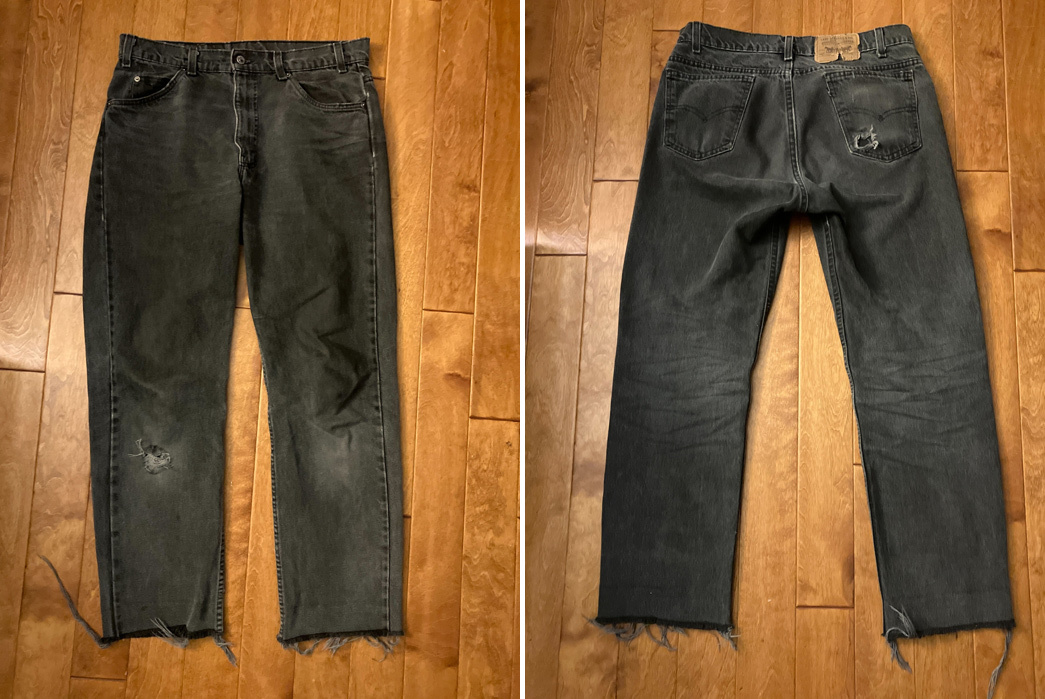
Indirectly born out of a deep infatuation with blue jeans, recently I have been reaching for black jeans whenever I feel the urge to wear denim. Easily achieving a completely different aesthetic than its indigo accomplice, I can’t recommend them enough and really think everyone should have a pair in their wardrobe. Especially when paired with a black tee. Even the white tee, blue jean combo can’t compare in my opinion.
This pair in particular are Levi’s 505s from 1994. I got them at a house call a few years back in Connecticut and have worn them ever since on a weekly basis. They are beautifully distressed and after taking a pair of scissors to the hem for a rougher – but more tailored look, these tapered jeans fit me perfectly! Also compared to deeper rabbit wholes of vintage Levi’s, these are still pretty available and affordable so check your local thrift and vintage stores and if you know your size, eBay is chock full of them.
Want to share your favourite jeans or ask one of the Heddels team about their picks? Let us know in the Heddels+ Discord

